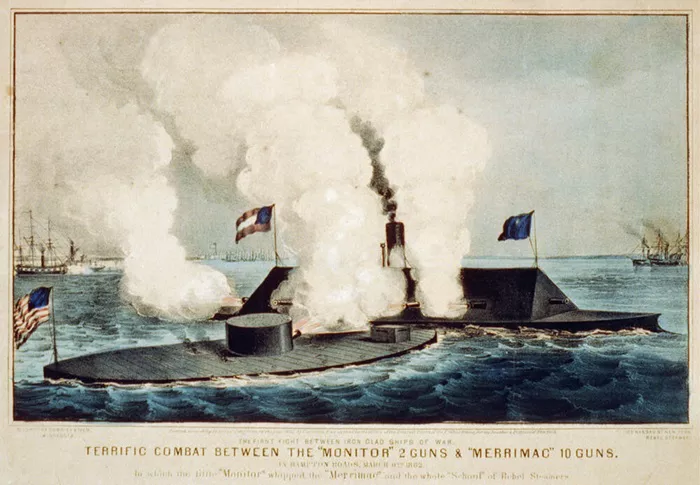January 30 has been a notable date in American history, marked by significant events that have influenced the nation’s political landscape, culture, and society. This article will explore various historical occurrences that took place on this day, detailing their context and impact.
What Happened on January 30 in American History?
1. The Launch of the USS Monitor (1862)
On January 30, 1862, the USS Monitor, the first ironclad warship commissioned by the United States Navy, was launched. This event marked a pivotal moment in naval warfare during the American Civil War. The Monitor was designed by engineer John Ericsson and was intended to challenge the Confederate ironclad CSS Virginia.
The introduction of ironclad ships changed naval combat forever. Traditional wooden ships were no match for these armored vessels, leading to a new era in maritime warfare. The Monitor’s famous battle with the CSS Virginia at the Battle of Hampton Roads in March 1862 demonstrated the effectiveness of ironclads and signaled the decline of wooden warships.
2. The First Assassination Attempt on a U.S. President (1835)
On January 30, 1835, an assassination attempt was made on President Andrew Jackson while he was leaving a congressional session. A man named Richard Lawrence, believing he was owed money by the government, fired two pistols at Jackson, both of which misfired.
This incident is significant as it was the first known assassination attempt on a sitting U.S. president. Jackson’s survival not only solidified his reputation as a tough leader but also highlighted vulnerabilities in presidential security that would prompt future reforms.
3. The Renaming of Yerba Buena to San Francisco (1847)
On this day in 1847, Yerba Buena, a small settlement in California, was officially renamed San Francisco. This change occurred during a period of rapid growth following the California Gold Rush.
The renaming signified San Francisco’s emergence as a major port city and cultural hub on the West Coast. Its strategic location and burgeoning population attracted diverse groups, contributing to its development into one of America’s most iconic cities.
4. The Assassination of Mahatma Gandhi (1948)
While not an American event per se, the assassination of Indian leader Mahatma Gandhi on January 30, 1948, had profound implications for global civil rights movements, including those in America. Gandhi was known for his philosophy of nonviolent resistance.
Gandhi’s assassination shocked the world and highlighted the ongoing struggles for peace and justice. His methods inspired numerous American civil rights leaders such as Martin Luther King Jr., who adopted nonviolent protest as a means to achieve social change.
5. The Death of Orville Wright (1948)
Orville Wright, one half of the pioneering Wright brothers who are credited with inventing and building the world’s first successful airplane, died on January 30, 1948.
Orville’s contributions to aviation were monumental; his innovations laid the groundwork for modern aeronautics. His death marked the end of an era in aviation history but also served as a reminder of the rapid advancements that had occurred since their first flight in 1903.
6. Franklin D. Roosevelt’s Birth (1882)
Franklin D. Roosevelt, born on January 30, 1882, would later become one of America’s most influential presidents. He served four terms from 1933 until his death in 1945.
Roosevelt’s leadership during the Great Depression and World War II fundamentally reshaped American government and society through his New Deal policies and wartime strategies. His presidency is often studied for its significant impact on both domestic policy and international relations.
7. The Supreme Court Ruling on Campaign Spending (1976)
On January 30, 1976, the U.S. Supreme Court ruled in Buckley v. Valeo that spending money to influence elections is a form of constitutionally protected free speech under the First Amendment.
This landmark decision fundamentally altered campaign finance laws in America by equating money with speech. It opened doors for unlimited spending by individuals and organizations in political campaigns, leading to significant changes in how elections are financed today.
8. The Launch of Ranger Spacecraft (1964)
On January 30, 1964, NASA launched its Ranger spacecraft aimed at exploring the Moon’s surface. This mission was part of America’s efforts during the Space Race against the Soviet Union.
The Ranger missions provided critical data about lunar conditions and paved the way for future manned missions to the Moon, culminating in Apollo 11’s historic landing in 1969.
Conclusion
January 30 is rich with historical significance that has shaped various aspects of American life—from advancements in technology and military strategy to profound political changes and cultural shifts. Each event discussed above not only reflects its time but also continues to influence contemporary society in numerous ways. Understanding these events provides valuable insights into America’s complex history and its ongoing evolution as a nation.
Related Topics:

